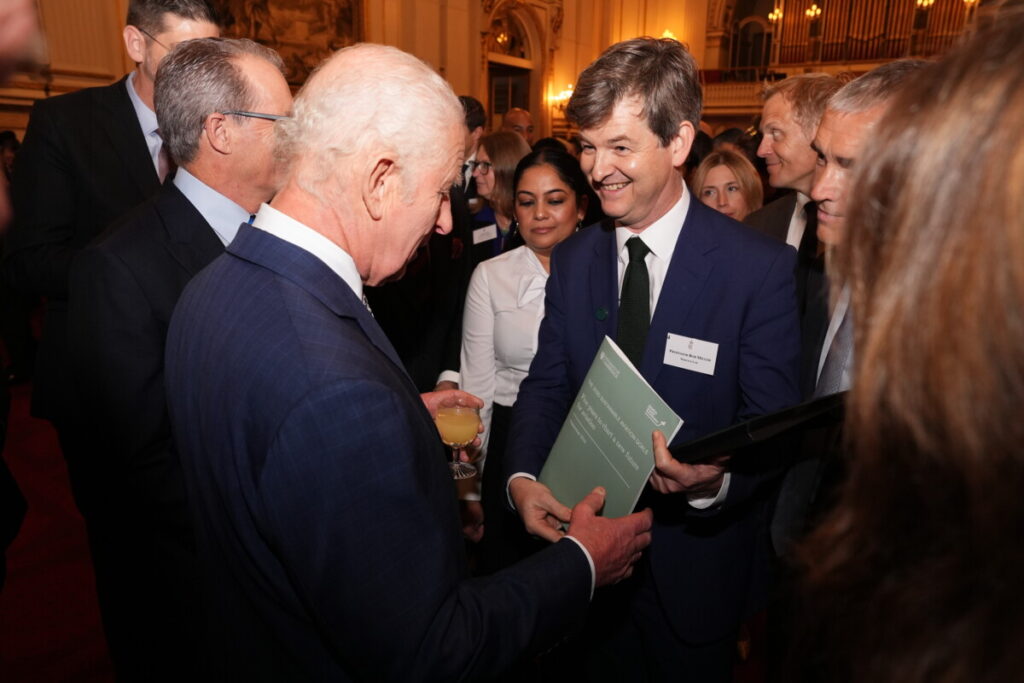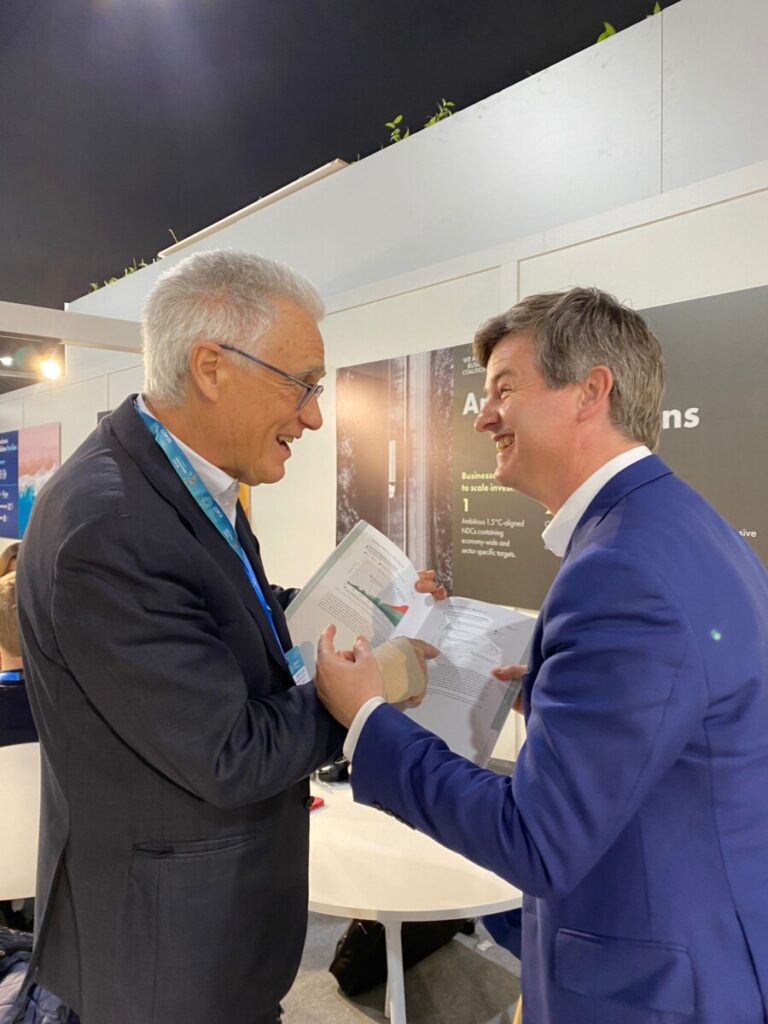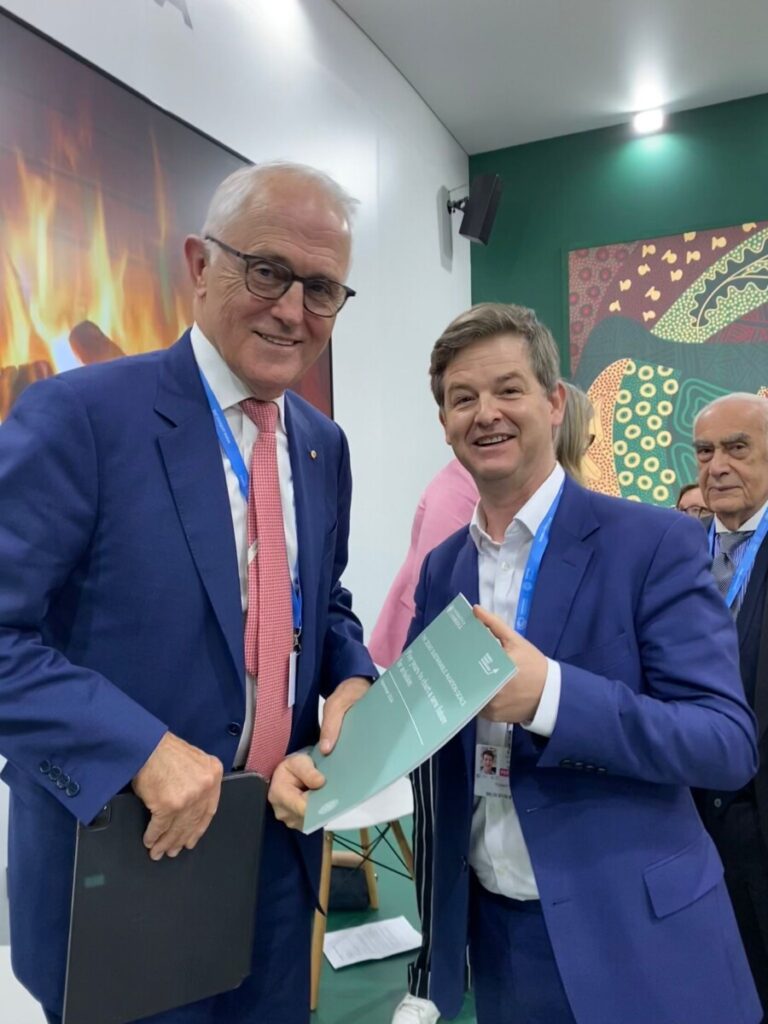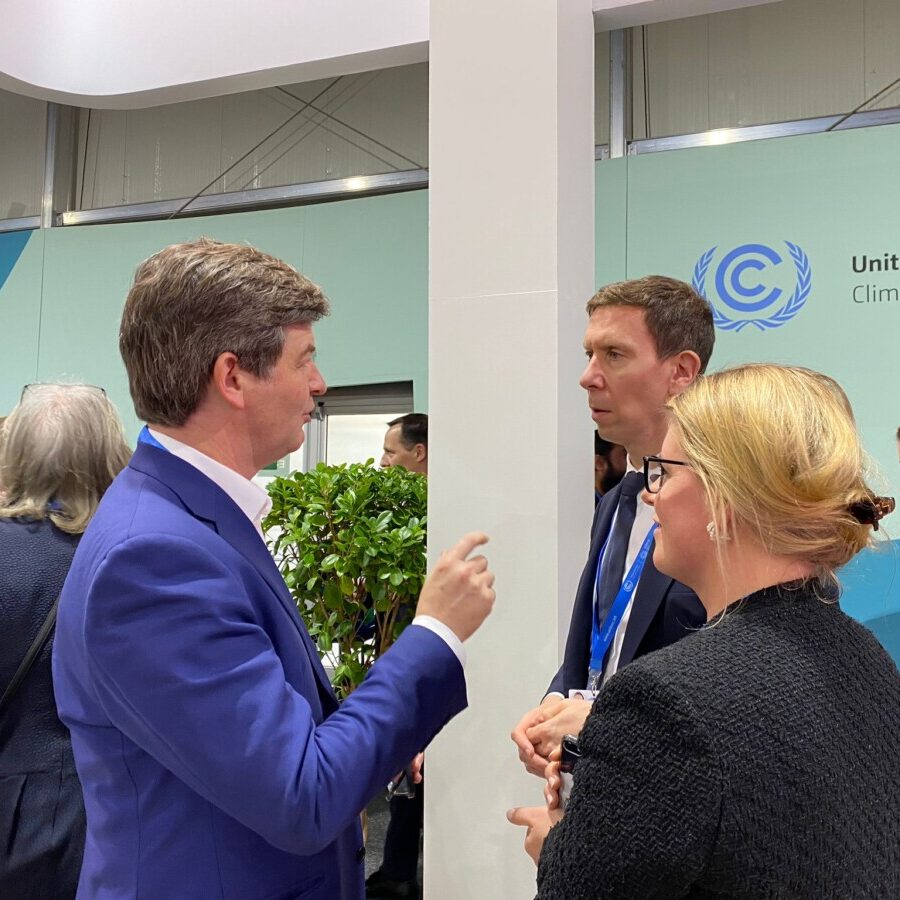A briefing from Prof Rob Miller from COP29 in Baku:
Turning ambition into action—that’s precisely what sustainable aviation needs right now. Achieving this will require bold moves from leading governments and strong, cross-sector coalitions. I’m thrilled to share some of my highlights from COP29!
After launching our report on the 2030 Sustainable Aviation Goals at Climate Week in New York in September, alongside The King’s Sustainable Markets Initiative, we’ve been overwhelmed by the support it’s received. Last week, I had the honour of presenting our report to King Charles at Buckingham Palace. His message to was clear: the time for action is now. Inspired by his call, I headed straight to COP29, ready to help transform words into real-world impact.

Why COP29 Matters and What Must Be Done:
1. Raising Global Ambition on Tackling Contrails:
Persistent contrails—the clouds formed by aviation—are believed to contribute as much warming as aviation’s CO₂ emissions, but public awareness and political action remains low.
This year, we partnered with Breakthrough Energy to host a cross-sectoral panel focusing on contrails at COP. Surprisingly, only about 25% of the audience had heard of contrails’ climate impact.
However, by the session’s end, there was strong consensus in the room that tackling contrails is “low-hanging fruit” compared to some other climate strategies. The session even made it to the front page of BBC News! Our call to action: agreement on launching the first Airspace-Scale Living Labs by COP30. Read more about contrail avoidance and Operation Blue Skies in our new report.

2. Tackling Biomass Limits Together:
One key tool for improving aviation’s carbon footprint is the development of Sustainable Aviation Fuels (SAFs) and many are pointing to how they can be made from waste biomass. However, the world’s waste biomass resources are limited, so we have to understand how best to use them as we navigate changes in land use, diets, and biotechnology.
This means that aviation policies need to shift from an aviation-only focus to a cross-sector approach. Over the past year, Aviation Impact Accelerator’s models have been vital in shaping UK policy—supporting the UK’s SAF mandates via the Department for Transport and helping the Department for Energy Security and Net Zero assess global biomass limits.
Discussions at COP are playing a critical role in helping to understand the pressures on global biomass, and turn this into international cooperation and agreement which ensures biomass use – whether for aviation or other sectors – is truly sustainable.

3️. Scaling Up Green Hydrogen and Energy for Net-Zero Aviation
Whether through synthetic kerosene or hydrogen-powered aircraft, net-zero aviation requires an unprecedented scale-up in green hydrogen and renewable energy production. COP29 offered a unique platform to engage with global leaders to find ways to drive up this scale.
If Australia is chosen as the host of COP31 later this week, it presents a significant opportunity for the UK to partner with Australia in building collaborations that amplify ambition—not just in production scale but in ensuring truly sustainable policy frameworks.

4️. The UK’s Leadership in Climate Action:
At COP29, the UK demonstrated a renewed commitment to climate leadership. Prime Minister Sir Keir Starmer announced bold targets: an 81% emissions reduction by 2035 and a transition to 100% clean power by 2030.
Achieving these ambitious goals will require unwavering focus, and the appointment of Chris Stark as Head of Mission Control underscores the UK’s dedication to delivery.
In sectors like aviation, there are numerous uncertainties and potential disruptions from emerging technologies. To navigate this and drive real action, we need a new mindset—one that moves beyond trying to just map historical trends to the future and instead thinks openly about what the future can be, grounded in fundamental physical principles, combined with a broad view of how each system and sector has wider dependencies.
The Aviation Impact Accelerator is built on this philosophy, and it was exciting to discuss at COP29 how its methodologies could be applied to other complex climate challenges. Watch this space for what’s next!

As I reflect on the past week, I’m inspired by the collective commitment of leaders worldwide and across various sectors to support aviation in substantially raising its ambition. There was a palpable sense of optimism and readiness to support the aviation sector in stepping up.
Today is Transport Day at COP—let’s see if aviation can take the bold steps necessary to engage with other sectors and deliver on the 2030 Sustainable Aviation Goals. Now is the time to turn our vision into reality. Together, we can drive aviation’s sustainable future!